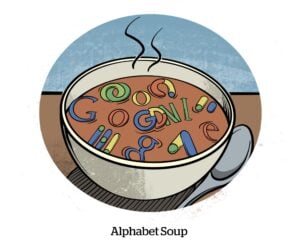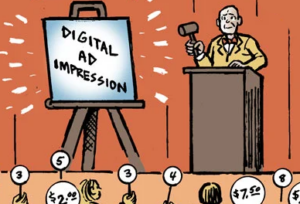 “Data-Driven Thinking” is written by members of the media community and contains fresh ideas on the digital revolution in media.
“Data-Driven Thinking” is written by members of the media community and contains fresh ideas on the digital revolution in media.
Today’s column is written by Christopher Reid, founder at Sortable.
The digital advertising industry is at war with itself. And none of the major players – users, publishers, ad tech vendors or advertisers – are blameless. Everyone is quick to point fingers and assign blame, but every stakeholder has a role in this war.
Publishers and brands should have the same goal: to attract and keep the attention of their target audiences. They have an opportunity to work together to ensure they provide a positive user experience to their target audience. Most publishers have almost no direct relationships with the brands that are advertising on their sites, if they even know which brands are on their site.
Instead, they’re separated by the opaque and nebulous ad tech ecosystem. Each player is left executing against its own objectives: Publishers optimize to the one metric that is easily apparent – revenue – and so do most of the intermediaries. Everyone becomes a nameless line item in someone else’s console.
This opaque, nameless and open ecosystem promotes fragmentation and mistrust. Standardization is slow, and ad tech vendors fight to fill the gaps. Meanwhile, the industry is constantly forced to reinvent itself every five years, fracturing and fragmenting whatever progress has been made toward consolidation. Users are left with the results: latency, ridiculous data usage, lack of privacy, malware, mobile redirects, listicles. So they react logically – they install ad blockers.
No One Gets Out Alive – Except The Largest Publishers, Google And Facebook
Many major publications have been able to stay out of the fray. When you’re big enough to sell all your inventory directly and control the experience for advertisers and users, you win.
Facebook, Google, Pinterest, BuzzFeed and many others don’t need to waste their time battling with the scourges of open web advertising. They create native, compelling, performance-driving ad opportunities, which drives a good experience to users and advertisers, and they reap all the profit in doing so.
Preserving brand integrity is very important to these publishers, and it allows them to enter into direct deals with advertisers, cutting out ad tech and the challenges that come with it in the process. This all assumes that these publications are even running ads, of course – some brands are so highly valued that simply placing their content behind paywalls is the best decision. Just look at the recent Netflix user questionnaire, which found 74% would simply leave Netflix if they started advertising.
On the ad tech side, Google is still the king. Google’s single sign-on cookie can track user behavior and activity across the web, every major site runs Google analytics and Google owns huge swaths of fiber and data centers. Combining this with its massive online presence in services and search has allowed Google to compile one of the largest databases of online behavior in the world.
No other ad network can compete in terms of breadth and depth of data, and therefore Google is currently the best equipped to balance the sometimes disparate interests of publishers, advertisers and users.
You Don’t Win By Being Right. You Win By Winning.
While everyone blames everyone else for the state of digital advertising, no one is really in the wrong. No one can blame publishers for wanting to make as much money as possible from their websites. No one can blame agencies or their clients for wanting to tell their brand story in a specific way, or for having concerns about brand safety and ad fraud. No one can blame content consumers for not wanting to be bombarded by advertisements – especially when they’re disruptive and not contextually relevant. And no one can blame vendors for wanting a piece of the ad tech cash cow.
Everyone is right. But sometimes you don’t win by being right. You win by winning. You can be right, but still lose.
So, What Does Winning Look Like?
It’s easy. Publishers win when they have happy users and advertisers and create revenue from the whole process. Advertisers win when they have access to a large audience, can target and communicate brand stories effectively and don’t have to worry about viewability or fraud.
And both publishers and advertisers win when they respect the user. Both site owners and site advertisers need a critical mass of impressions to be successful, and if they don’t start valuing the people who visit their sites, they will struggle to survive. People want to visit a site with a positive user experience. They don’t want to feel like they’re being targeted or monetized. They’re willing to accept advertising in exchange for content, but not at the expense of site performance or data usage.
If publishers and advertisers can work together, they can build loyal and engaged audiences that will continue to generate revenue for everyone moving forward. While the walled gardens have the benefit of working out these issues quickly, the open ecosystem has the same opportunity.
The more open we are to standards and transparency, the better things will get. But it will require cooperation. The good news is that we’re moving in the right direction.
Follow Christopher Reid (@reidchristopher), Sortable (@Sortable) and AdExchanger (@adexchanger) on Twitter.












